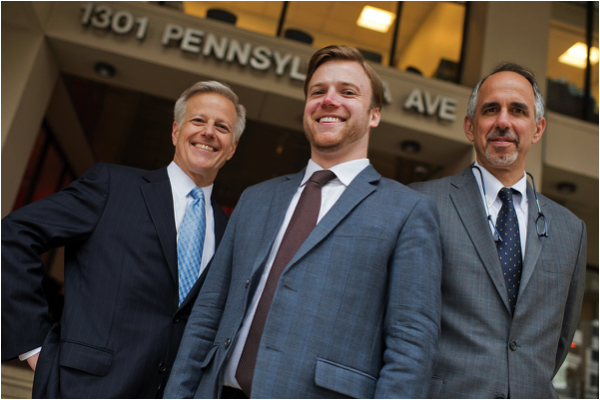
A push for closer ties
“The earth moved on Dec. 17. There is no question about that,” Luke Albee, a Capitol Hill veteran, says of the day that President Barack Obama announced his intention to normalize relations with Cuba.
Sparked by the historic announcement, Albee soon teamed up with Steven Law, another longtime Washington hand, and political consultant James Williams to start Engage Cuba, an advocacy group urging Congress to lift travel and trade restrictions with Cuba.
The group formally launches June 16, and it already has the backing of several business and advocacy groups that support opening ties to Cuba, such as the National Foreign Trade Council, Council of the Americas and #CubaNow. Its emergence also coincides with the start of a high-profile super PAC, the New Cuba PAC, with similar goals.
Working to reverse a five-decade-long policy that has become ingrained in the American psyche will lead to some unusual alliances, and these three fit the bill.
Williams, 31, is president of Engage Cuba and one of the directors of the super PAC. A 2006 George Washington University graduate, Williams most recently was director of public policy at the Trimpa Group, a liberal consulting firm that worked on Cuba policy. He also previously was a consultant to the Bonner Group, a fundraising firm.
Williams is 24 years younger than Albee and Law, who were top congressional aides from opposing parties but who struck up a long-lasting friendship that was put to use in creating Engage Cuba.
Albee recently left his position as chief of staff to Sen. Mark Warner, a Virginia Democrat. He was chief of staff to Sen. Patrick J. Leahy, a Vermont Democrat, from 1993 to 2004.
Law was a longtime aide to GOP Sen. Mitch McConnell of Kentucky, including working as chief of staff to the future Senate majority leader from 1991 to 1997. Law will remain president of the GOP super PAC American Crossroads.
“James is the main guy in this enterprise,” Albee says. “I think Steven and I are doing what we can, based on our many years of experience, to give him counsel and all jointly go together and talk to folks about what we’re doing.”
The three men were drawn to the issue for different reasons. Albee wrote his master’s thesis on the 1961 Bay of Pigs invasion and has long worked on Cuba policy, at one point going to watch the Baltimore Orioles play in Cuba and partaking of a dinner with Fidel Castro. Law’s interest was piqued only after Obama’s announcement in December. And Williams, having spent time in Havana, says he has personally seen the desire of the Cuban people to embrace the United States.
“I was just shocked,” he says. “Of all the countries I have traveled to, I have never been to any place that they were more excited and warmer to America.”
Williams, Albee and Law know they’re in for a long fight. Each called for maintaining a sustained effort over the next few years and building support from people and organizations on both sides of the aisle.
The strongest opposition to ending the embargo has come from the GOP, though some Republicans, such as Sen. Jeff Flake of Arizona, support the administration’s push. Many in the business community, which has close ties to the GOP, are eager to take advantage of new markets in Cuba.
“There is a bit of a sense of a Washington spring going on in the Capitol,” says Law, who was previously general counsel for the U.S. Chamber of Commerce. Cuba “is one of those kinds of issues that could be one example of bipartisan cooperation flying forward.”
(From: Engages Cuba)


